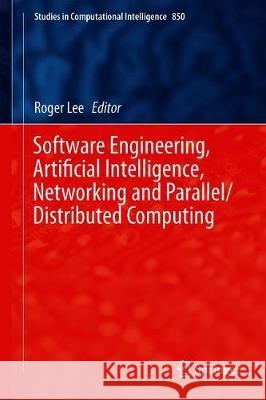Software Engineering, Artificial Intelligence, Networking and Parallel/Distributed Computing » książka
topmenu
Software Engineering, Artificial Intelligence, Networking and Parallel/Distributed Computing
ISBN-13: 9783030264277 / Angielski / Twarda / 2019 / 262 str.
Software Engineering, Artificial Intelligence, Networking and Parallel/Distributed Computing
ISBN-13: 9783030264277 / Angielski / Twarda / 2019 / 262 str.
cena 403,47
(netto: 384,26 VAT: 5%)
Najniższa cena z 30 dni: 385,52
(netto: 384,26 VAT: 5%)
Najniższa cena z 30 dni: 385,52
Termin realizacji zamówienia:
ok. 22 dni roboczych
Bez gwarancji dostawy przed świętami
ok. 22 dni roboczych
Bez gwarancji dostawy przed świętami
Darmowa dostawa!
Kategorie:
Kategorie BISAC:
Wydawca:
Springer
Seria wydawnicza:
Język:
Angielski
ISBN-13:
9783030264277
Rok wydania:
2019
Wydanie:
2020
Numer serii:
000318395
Ilość stron:
262
Waga:
0.56 kg
Wymiary:
23.39 x 15.6 x 1.75
Oprawa:
Twarda
Wolumenów:
01
Dodatkowe informacje:
Wydanie ilustrowane











